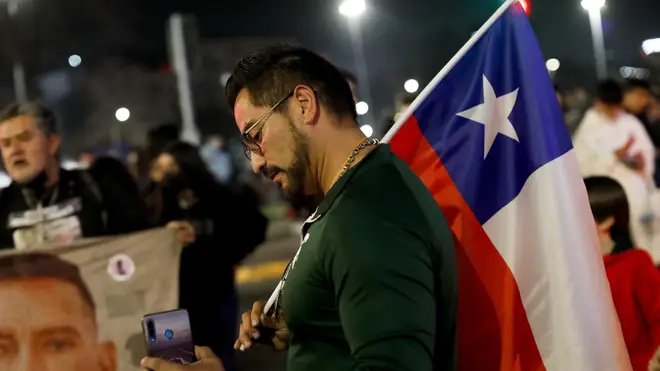
Henry Riley 4am - 7am
5 September 2022, 05:14

Gabriel Boric had argued the document would have ushered in a progressive era.
Chile’s leader has suffered a significant setback after voters resoundingly rejected a new constitution to replace a 41-year-old charter imposed under dictator Augusto Pinochet.
President Gabriel Boric had argued the document would have ushered in a new progressive era.
With 99% of the votes counted in Sunday’s plebiscite, the rejection camp had 61.9% support compared to 38.1% for approval amid heavy turnout with long lines at polling states. Voting was mandatory.

The approval camp conceded defeat, with its spokesman Vlado Mirosevic saying: “We recognise this result and we listen with humility to what the Chilean people have expressed.”
Mr Boric, who had lobbied hard for the new document, said the results made it evident the Chilean people “were not satisfied with the constitutional proposal that the convention presented to Chile”.
Most Chileans favour changing the dictatorship-era constitution and Mr Boric made it clear the process to amend it would not end with Sunday’s vote. He said it was necessary for leaders to “work with more determination, more dialogue, more respect” to reach a new proposed charter “that unites us as a country”.
The rejection was widely expected in the country of 19 million as months of pre-election polling showed Chileans had grown wary of the proposed charter written by a constituent assembly in which a majority of delegates were not affiliated with a political party.

The result deals a major blow to Mr Boric, who at 36 is Chile’s youngest president.
He had tied his fortunes so closely to the new document that analysts said it was likely some voters saw the plebiscite as a referendum on his government at a time when his approval ratings have been plunging since he took office in March.
What happens now amounts to a big question mark. Chilean political leaders of all stripes agree the constitution that dates from the country’s 1973-1990 dictatorship must change.
The process that will be chosen to write up a new proposal still has to be determined and will likely be the subject of hard-fought negotiations between the country’s political leadership.